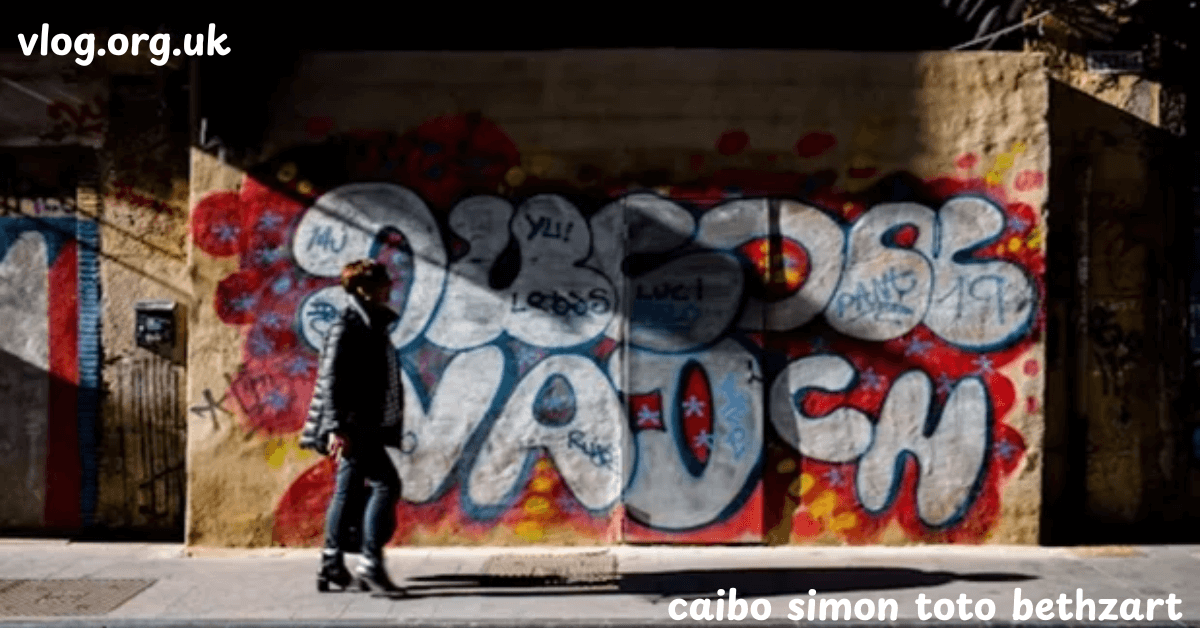
Caibo Simon Toto Bethzart is a musical duo that has made waves in the Latin music scene with their unique fusion of Venezuelan rhythms, pop music, and Afro-Caribbean influences. Their ability to blend traditional Venezuelan sounds with modern music genres has led to an expansive and loyal following. The duo’s energetic performances, innovative sound, and powerful lyrics have earned them recognition across Latin America and beyond. The story of Caibo is one of passion, dedication, and the transformative power of music.
From their roots in the vibrant city of Maracaibo, Venezuela, to their rise on international stages, Caibo Simon Toto Bethzart has captivated fans with their distinct style and powerful fusion of tropical pop and reggaeton. In this article, we explore the duo’s journey, their musical evolution, and what sets their music apart in today’s ever-changing musical landscape.
Who Are Caibo?
Caibo is a Venezuelan duo formed by two talented musicians: Simón “Toto” Ruiz and Beethzart Acosta. The pair rose to prominence with their unique blend of tropical rhythms, reggaeton fusión, and traditional Venezuelan music, notably gaita zuliana. As Afrovenezolano musicians, their music resonates with diverse audiences, blending Afro-Caribbean influences with the pop and urban beats of Latin American music.
Known for their catchy tunes and infectious energy, Caibo has become synonymous with modern Venezuelan pop music. They have worked with some of the biggest names in Latin music, such as Miguel Ignacio “Nacho” Mendoza and Chino & Nacho, as well as artists like Marc Anthony, Jennifer Lopez, and Maluma. Their collaborations and influence in the Latin pop and música urbana scenes highlight their impact on the musical landscape.
The Meaning Behind “Caibo Simon Toto Bethzart”
The name “Caibo” is more than just a brand—it’s a reflection of the duo’s roots and musical philosophy. “Caibo” is derived from a word in the local Maracucho dialect, representing a sense of belonging, unity, and celebration of Afro-Venezuelan culture. The names Simon Toto and Beethzart Acosta honor the individual identities and contributions of the musicians. Together, they create a sound that speaks to both their heritage and their contemporary artistic vision.
The inclusion of “Simon Toto Bethzart” in the full name highlights the personal connection and teamwork between the two musicians. While Caibo’s sound is heavily influenced by their cultural background, the name also stands for the diverse musical influences that shape their music—embracing everything from traditional Venezuelan gaita rhythms to global pop sounds, bridging the gap between Venezuela’s rich musical history and the modern music scene.
Why Their Music Stands Out
What sets Caibo Simon Toto Bethzart apart is their unwavering commitment to preserving Venezuelan traditions while innovating and pushing boundaries in the world of Latin pop and reggaeton. They blend tropical pop with elements of reggaeton and gaita, creating a sound that is both contemporary and rooted in their Afro-Venezuelan heritage.
Their music isn’t just about catchy beats; it’s about telling stories of love, struggle, and resilience. With their dynamic vocal performances, infectious rhythms, and heartfelt lyrics, Caibo has a way of connecting with their audience on a deep emotional level. Their music is a celebration of life, culture, and the power of music to bring people together.
The Journey of Caibo Simon Toto Bethzart
The journey of Caibo Simon Toto Bethzart is a testament to their resilience and love for music. From humble beginnings in Maracaibo, their rise to fame has been marked by a combination of hard work, artistic integrity, and a drive to take Venezuelan music to new heights. Over the years, they have cultivated a unique style that resonates with fans across Latin America, particularly in Venezuela, where they continue to be celebrated as pioneers of a new era in Latin music.
Their breakthrough came with the release of several popular singles, which gained them recognition not only in Venezuela but across the Latin American and international music scenes. They quickly became known for their high-energy performances and their ability to blend different genres seamlessly. As they gained more recognition, Caibo found themselves performing at prestigious venues, earning nominations for awards like the Premio Pepsi Music, and collaborating with top Latin music stars.
Early Life and Musical Influences
Simón “Toto” Ruiz and Beethzart Acosta both come from musical families that nurtured their passion for music from an early age. Growing up in Maracaibo, they were exposed to a wide range of musical genres, from traditional Venezuelan gaita to Caribbean rhythms and Latin pop. These early experiences had a profound impact on their musical development and helped shape the sound of Caibo.
Their musical influences are deeply rooted in Venezuela’s rich musical traditions, particularly in the gaita zuliana style, which is integral to the region’s cultural identity. However, their exposure to international artists like Marc Anthony, Jennifer Lopez, and Maluma broadened their musical horizons, allowing them to experiment with pop music and reggaeton fusión. This unique blend of local and global influences gave rise to their signature sound, which continues to evolve with each release.
Formation of the Duo
The formation of Caibo Simon Toto Bethzart was the result of a shared vision between Toto and Beethzart. Both had been involved in the local music scene for years, performing with various bands and collaborating with other musicians. However, it wasn’t until they came together that they realized the potential of combining their individual talents into one cohesive musical project.
From the beginning, their chemistry was undeniable. Toto’s distinctive vocal style combined perfectly with Beethzart’s songwriting and instrumental skills, creating a sound that was fresh, vibrant, and uniquely Venezuelan. Their decision to form Caibo allowed them to explore their shared love for Venezuelan music while also branching out into new genres and expanding their musical reach.
Breakthrough in the Latin Music Scene
Caibo Simon Toto Bethzart’s breakthrough in the Latin music scene came with the release of their first major singles, which showcased their ability to blend tropical rhythms with pop influences. Their music quickly caught the attention of Latin American listeners, and their fanbase began to grow exponentially.
Their singles, many of which became hits in Venezuela and other Latin American countries, earned them widespread recognition and a loyal following. Their distinct sound, which incorporated elements of reggaeton fusión, música urbana, and traditional Venezuelan styles, set them apart from other Latin artists and positioned them as leaders in the genre. The duo’s breakthrough also marked the beginning of a successful international career, with performances at major music festivals and collaboration offers from some of Latin America’s biggest stars.
Caibo’s Musical Style and Influences
Caibo’s musical style is a unique fusion of Venezuelan musical traditions, Afro-Caribbean rhythms, and contemporary pop and reggaeton influences. Their music blends the vibrant sounds of tropical pop with the infectious rhythms of gaita zuliana, creating a dynamic and energetic listening experience.
Their influences are deeply rooted in their Venezuelan heritage, with elements of Afrovenezuelan music, tropical rhythms, and traditional Venezuelan genres like gaita. However, their exposure to global music trends, including Latin pop and reggaeton, has played a significant role in shaping their sound. Artists like Chino & Nacho, Maluma, and Jennifer Lopez have influenced their approach to music, pushing them to experiment with new sounds and collaborations that resonate with a global audience.
Fusion of Traditional Venezuelan Music and Modern Sounds
One of the standout features of Caibo’s music is their ability to seamlessly blend traditional Venezuelan music with modern sounds. By fusing the energetic rhythms of gaita with the catchy beats of reggaeton and tropical pop, they have created a sound that is both contemporary and deeply connected to their cultural roots.
This fusion is not only a reflection of their musical influences but also a celebration of Venezuela’s rich musical heritage. By incorporating traditional instruments like the cuatro and maracas into their songs, Caibo brings a fresh perspective to Venezuelan music, making it accessible to younger generations while preserving its cultural significance.
The Role of Afro-Caribbean and Latin Pop Rhythms
Afro-Caribbean rhythms play a pivotal role in Caibo’s music. The duo’s Afrovenezuelan roots are evident in the way they incorporate rhythms like the cumbia, salsa, and other Caribbean-inspired beats into their songs. These rhythms are at the heart of their sound, providing a strong foundation for their tropical pop and reggaeton fusion.
Latin pop rhythms also influence Caibo’s music, particularly in their ability to create infectious hooks and catchy melodies. This blend of Afro-Caribbean and Latin pop elements makes their music appealing to a broad audience, allowing them to connect with fans across Latin America and beyond.
Evolution of Their Sound Over the Years
Over the years, Caibo’s sound has evolved, reflecting their growth as artists and their desire to push creative boundaries. From their early days experimenting with traditional Venezuelan rhythms to their more recent exploration of reggaeton fusión and Latin pop, their musical evolution has been marked by experimentation and a willingness to embrace new genres.
This evolution has allowed them to stay relevant in a rapidly changing music industry, ensuring that their music continues to resonate with listeners. Whether it’s through their collaborations with other artists or their solo projects, Caibo has consistently adapted to the times while staying true to their roots.
Caibo’s Hiatus and Solo Projects
In 2018, Caibo took a brief hiatus from their music career, with both Toto and Beethzart pursuing solo projects during this time. This break allowed them to explore their individual musical ideas and continue to grow as artists. Despite the hiatus, Caibo’s influence on the Latin music scene remained strong, with fans eagerly awaiting their return.
Both Toto and Beethzart have continued to make waves in the music world during their time apart. Toto released several solo tracks that showcased his distinctive vocal style, while Beethzart worked on various collaborations with other Latin artists. Their individual projects allowed them to further refine their sound and expand their musical horizons.
Why Did Caibo Take a Hiatus in 2018?
Caibo’s decision to take a hiatus in 2018 was largely driven by the desire to explore new creative avenues and focus on individual musical projects. During this time, both Toto and Beethzart took the opportunity to reflect on their careers and the direction they wanted to take their music. The break allowed them to recharge and come up with fresh ideas, ensuring that their eventual return would be marked by a more refined sound and new musical inspirations.
While the hiatus left fans longing for more, it was an essential step in the duo’s artistic journey, allowing them to grow individually and prepare for the next chapter in their careers.
What Are Simon Toto and Beethzart Doing Now?
Currently, both Simón “Toto” Ruiz and Beethzart Acosta are pursuing their own musical endeavors, yet fans remain hopeful for a future reunion. Toto has continued to release solo music that blends his signature vocal style with contemporary reggaeton and tropical pop influences, while Beethzart has focused on collaborations with other prominent Latin artists.
Their solo projects have been well-received, with both musicians continuing to expand their fanbases and solidify their place in the Latin music scene. However, fans are eager to see Caibo reunite and create new music together. The duo’s musical chemistry and shared vision have made them a powerful force in Latin music, and many believe that their best work is yet to come.
The Future of Caibo Simon Toto Bethzart: Will They Reunite?
While Caibo has been on a hiatus, their legacy continues to grow, and many fans are hopeful for their reunion. Both Toto and Beethzart have expressed interest in collaborating once again, and the growing demand for new music from the duo suggests that a return is likely in the future.
Caibo’s unique sound and undeniable chemistry make them one of the most exciting duos in Latin music, and their potential return could mark the beginning of a new era for Venezuelan music on the global stage. Whether it’s through a reunion album or a series of collaborations, the future of Caibo Simon Toto Bethzart is filled with promise and excitement.
Conclusion
Caibo Simon Toto Bethzart has proven to be a groundbreaking force in Latin music, successfully blending traditional Venezuelan rhythms with modern pop and reggaeton sounds. Their journey from Maracaibo to international fame is a testament to their musical talent and dedication to their craft. With a loyal fanbase and a unique sound that resonates across Latin America, Caibo continues to inspire and influence the Latin music scene. Whether as solo artists or as a duo, Toto and Beethzart have cemented their place in the hearts of music lovers worldwide.
FAQs
What genre of music does Caibo Simon Toto Bethzart play?
Caibo Simon Toto Bethzart blends tropical pop, reggaeton fusión, and traditional Venezuelan rhythms like gaita zuliana to create a unique sound.
Why did Caibo go on hiatus?
Caibo took a break in 2018 to explore solo projects and grow individually as artists, but they have expressed interest in reuniting in the future.
Who are the members of Caibo?
Caibo is composed of Simón “Toto” Ruiz and Beethzart Acosta, both of whom are influential Afrovenezuelan musicians.
Has Caibo collaborated with other artists?
Yes, Caibo has collaborated with various Latin artists, including Miguel Ignacio “Nacho” Mendoza, Marc Anthony, and Maluma.
What is the significance of the name “Caibo”?
The name “Caibo” represents a sense of unity and cultural pride, reflecting the duo’s Afro-Venezuelan heritage and their musical philosophy.
Read Next :- Bonjixkiz






